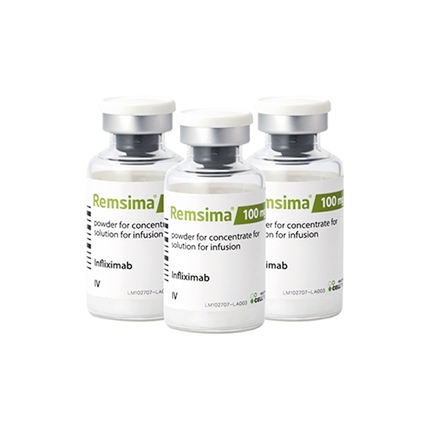- Bone Health
- Immunology
- Hematology
- Respiratory
- Dermatology
- Diabetes
- Gastroenterology
- Neurology
- Oncology
- Ophthalmology
- Rare Disease
- Rheumatology
CHMP Gives Remsima SC a Positive Recommendation
The Committee for Medicinal Products for Human Use (CHMP) of the European Medicines Agency issued a thumbs up for a subcutaneous (SC) infliximab biosimilar candidate from Celltrion.
A subcutaneous infliximab biosimilar (Remsima SC) candidate from Celltrion Healthcare, of Incheon, Republic of Korea, has received a recommendation for marketing authorization from European authorities. If the recommendation is accepted by the European Commission, “Remsima SC (120 mg) can be used without IV [intravenous] infusion both for new and existing rheumatoid arthritis [RA] patients,” the company said in a statement.
“IV administration of infliximab requires frequent hospital visits, which can pose a challenge to some patients especially given the current COVID-19 pandemic,” the company quoted RA expert Roberto Caporali as saying.
Caporali is a professor of rheumatology at the University of Milan and head of the Rheumatology Unit of Gaetano Pini Hospital, in Milan, Italy. “The direct subcutaneous induction of the SC formulation of infliximab could potentially shorten drug administration time via self-administration at home, reduce healthcare practitioner time and burden on healthcare system, as well as offering additional flexibility and convenience for patients.”
The recommendation for authorization came from the Committee for Medicinal Products for Human Use of the European Medicines Agency (EMA). The recommended Remsima SC dosage for patients newly initiated on infliximab or with new RA diagnoses is an injection at week 0 followed by injections at weeks 1, 2, 3, and 4. Every 2 weeks after, patients would receive maintenance therapy. For patients with a history of treatment with infliximab, Remsima SC would be administered 8 weeks after the final administration of intravenous infliximab.
“If the recommendation of the EMA is accepted by the European Commission, Remsima SC could be used without IV infusion for newly initiated patients as well as patients currently on infliximab treatment,” explained HoUng Kim, PhD, head of the Medical and Marketing Division at Celltrion.
The company estimated that potential savings would be $29 million over 1 year from Remsima SC and IV induction vs IV infliximab alone based on a model enrolling British patients with RA. The potential savings without IV induction would have been $19 million.
Also of Note
Earlier this year the company discussed its investment in a high-concentration, citrate-free version of adalimumab.
Late last year, Celltrion announced plans to break ground on a $453.3 million biopharmaceutical plant near its base of operations in Incheon.
Newsletter
Where clinical, regulatory, and economic perspectives converge—sign up for Center for Biosimilars® emails to get expert insights on emerging treatment paradigms, biosimilar policy, and real-world outcomes that shape patient care.

